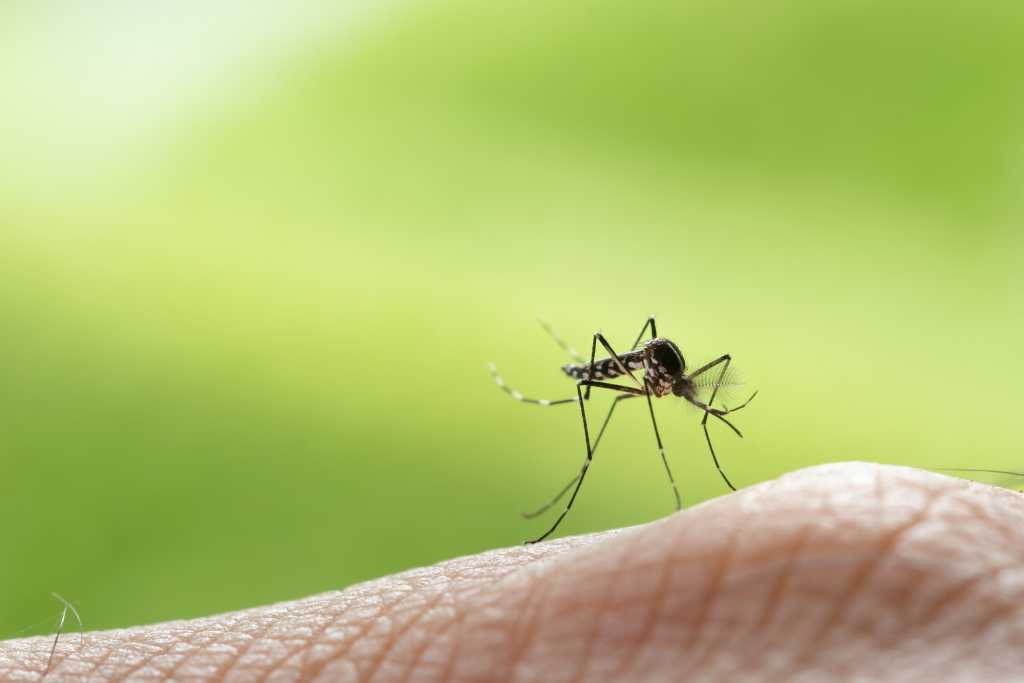MORE TO SHIP FREE 🚚
NICE. SHIPPING IS FREE 🎉
MORE TO REDEEM GIFT 🎁
YAY. REDEEM A FREE GIFT 🥳
YOUR CART IS EMPTY. SHOP NOW.
Heartworm disease is a serious and potentially fatal disease in dogs. It is caused by foot-long worms (heartworms) that live in the heart, lungs, and associated blood vessels of affected dogs, causing severe damage to infected organs, including lung and heart disease. Dogs are natural hosts for heartworms, which means heartworms can live inside the dog, mature into adults, mate, and produce offspring. If untreated, their numbers can increase. Organ damage caused by heartworms has a lasting effect and can affect the dog’s health and quality of life long after the parasites are gone. As such, prevention is the best option.

Heartworm disease is not contagious. This means that a dog cannot catch the disease from being near an infected dog. Heartworm disease only spread through the bite of a mosquito. In an infected dog, adult female heartworms release their offspring, called microfilariae, into the dog’s bloodstream. When a mosquito bites an infected dog, the mosquito becomes infected with microfilariae. The microfilariae become infective larvae while living inside the mosquito. Microfilariae must pass through a mosquito to become infective larvae. When the infected mosquito bites another dog, the infective larvae are transmitted to the dog through the bite wound.
Luckily, there are ways you can help protect your dog from mosquitoes.
Mosquito repellant
Use a pet-friendly mosquito repellant like this Bio-X 3-in-1 Aerosol Spray (Insect Repellent + Disinfectant + Deodorizer) around your pup’s bed or at dark corners where your pup loves to lay. This will help to keep mosquitoes and other pesky insects away from your pets. If you are looking for a dog-friendly repellant that can be sprayed on your pup before his walks try this Essential Dog Guard Spray (Lemongrass, Cedarwood & Rose Geranium Citronella) for Dogs. Never use mosquito repellent meant for humans as some can contain ingredients that are safe for people but toxic to pets.
Protective dog blanket and clothing
Some dogs love their blankets. It gives them a place to snuggle up and be comfortable. If that’s your pup, give him the Insect Shield Flea & Tick Protection Blanket For Cats & Dogs. This pet protection blanket repels mosquitoes, ticks, flies, and fleas. The entire family can use this Insect Shield blanket. Insect Shield® develops other protective gear as well, including this fashionable mosquito repellant bandana - Insect Shield Dog & Bone Flea & Tick Repellent Bandana for Dogs. Check out the Insect Shield® product range on our website.
Insect control dog collar charm
There are various dog collar charm or pendant that can assist to repel fleas, ticks and mosquitos. One of them is this PawTect Natural Flea & Tick Control Dog Collar Charm. It’s 100 percent pesticide and chemical-free, and is suitable for pets with sensitive skin, or allergies to fleas or chemical products. This PawTect pendant is lightweight but durable and can be attached to your pup’s collar.

In the initial stages of the disease, many dogs show few symptoms or no symptoms at all. The longer the infection persists, the more likely symptoms will develop.
Signs of heartworm disease may include:
Dogs with large numbers of heartworms can develop a sudden blockage of blood flow within the heart leading to a life-threatening form of heart failure. Sudden onset of labored breathing, pale gums, dark bloody, or coffee-colored urine. Prompt surgical removal of the heartworm blockage is necessary to preserve the dog’s life.

Treatment is available and your veterinarian will be able to advise you on the best treatment approach for dogs. The drug used to kill off adult heartworms is melarsomine dihydrochloride. This drug is administered in a series of injections. Dogs with severe heartworm disease may require other medications depending on the severity of the disease. Some dogs may require lifetime treatment for heart disease even after the heartworms have been killed.
Melarsomine treatment is expensive and can be out of reach for some pet parents. In such a case, if the dog is stable, the vet may recommend using an ivermectin-based preventive. Be aware that ivermectin preventive does not kill adult heartworms. Ivermectin is not effective in killing adult heartworms in dogs. The drug merely shortens the lifespan of adult heartworms. The medication works by preventing the development of heartworm larvae into adult worms, but once the larvae have matured into adults, ivermectin is not usually effective in eradicating them. As such, an infected dog will continue to test positive for heartworm for months or even years.
It is important to note that prevention is the best course of action when it comes to heartworm disease. Regular heartworm testing and preventative medication can help to ensure that your dog does not become infected with heartworms in the first place, which can help to avoid the need for more extensive and costly treatment options down the line.

Even though treatment is available, no one wants to hear that their dog has heartworm. The treatment is a stressful process for both the dog and the owner. Here's what you can expect if your dog tests positive:
Restrict exercise
When a dog is diagnosed with heartworm disease, it is important to restrict exercise to avoid exacerbating the condition. Physical exertion increases the rate at which the heartworms cause damage to the heart and lungs. The reason for this is that the presence of the worms can make it more difficult for the heart to pump blood efficiently. When a dog with heartworm disease engages in vigorous exercise, the increased demand for oxygen and circulation can put additional strain on the heart and lungs, potentially leading to serious complications. This can include heart failure, respiratory distress, and even sudden death in some cases. The more severe the symptoms, the less activity your dog should have.
Stabilize your dog's condition
Often, before actual heartworm treatment can begin, your dog’s condition may need to be stabilised with appropriate medication and therapy. In severe cases of heartworm disease where the dog suffers from other complications, the stabilisation process can take several weeks before the actual heartworm treatment can begin. Take note that the severity of heartworm disease does not always correlate with the severity of symptoms. An infected dog can have many worms but have few or no symptoms early in the course of the disease.
Administer heartworm treatment
Once your dog’s condition is stable, the vet will recommend a treatment protocol, often involving several stages. As with most diseases, early stages of heartworm disease have a higher success rate with treatment. More severe diseases can also be successfully treated, but the possibility of complications is greater.

Continue to rest after treatment
The melarsomine treatment drug works by targeting and killing the adult worms that are present in the dog's heart and lungs. The medication is typically administered by injection, and treatment typically involves a series of injections given over a period of several weeks. The injections are given deep into the muscles of the dog's back, and the medication is slowly absorbed into the bloodstream, where it targets and kills adult heartworms.
One of the potential risks associated with the treatment is that the dying heartworms can cause blockages in the pulmonary arteries, which can lead to respiratory distress and other serious complications. To help minimize this risk, dogs undergoing the melarsomine treatment are typically restricted from exercise and other forms of physical activity. Most post-treatment complications are caused by blockages due to fragments of dead heartworms. This can be a dangerous period, so it is essential that the dog be kept as quiet as possible and is not allowed to exercise for some time following the final injection of heartworm treatment. No walks, no running around. The dog must live an indoor life.
This can be challenging with active young dogs. Get creative and play indoor brain games to keep your pup entertained without too much physical exertion. Try nosework dog toys like this Studio Ollie Nosework Dog Toy (Grilled Sausage) - Squeak + Rustle to help prevent boredom. To avoid the possibility of your dog contracting heartworm disease again, you will want to administer heartworm prevention year-round for the rest of his life.

Here are the steps you can take to prevent your dog from getting heartworm:
Heartworm preventatives are best purchased from your veterinarian or AVS-registered e-vet-dispensaries. There are fake heartworm preventatives on the market, and these may contain incorrect or even expired ingredients. This can put your pet at risk of developing heartworm disease. Ask your veterinarian for assistance when unsure. He or she would be able to help you find the best heartworm preventative for your pet.
Though treatment is available, it is expensive and potentially toxic, and the whole treatment process is stressful, requiring multiple visits to the veterinarian and a series of injections. Some dogs may even require lifelong medication due to organ damage caused by heartworm disease. With heartworm disease, prevention is best!

Comments will be approved before showing up.
Ever seen your dog basking in the sun? It may look like laziness, but dogs love sunbathing for several fascinating...
Your dog's body detoxes naturally, but daily exposure to chemicals and pollutants can overwhelm them. Learn safe ways to support...
Arthritis can make movement painful for dogs, but the right diet can help improve comfort and mobility. Learn how weight...



